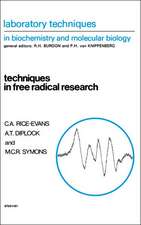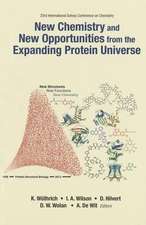Malaria: Colloquium Series on Integrated Systems Physiology: From Molecule to Function
Autor Juliana Carvalho Tavaresen Limba Engleză Paperback – 31 aug 2013
Din seria Colloquium Series on Integrated Systems Physiology: From Molecule to Function
- 5%
 Preț: 391.02 lei
Preț: 391.02 lei - 5%
 Preț: 422.92 lei
Preț: 422.92 lei - 5%
 Preț: 390.10 lei
Preț: 390.10 lei - 5%
 Preț: 390.10 lei
Preț: 390.10 lei - 5%
 Preț: 424.57 lei
Preț: 424.57 lei - 5%
 Preț: 389.93 lei
Preț: 389.93 lei - 5%
 Preț: 422.92 lei
Preț: 422.92 lei - 5%
 Preț: 391.02 lei
Preț: 391.02 lei - 5%
 Preț: 391.22 lei
Preț: 391.22 lei - 5%
 Preț: 389.57 lei
Preț: 389.57 lei - 5%
 Preț: 424.94 lei
Preț: 424.94 lei - 5%
 Preț: 390.45 lei
Preț: 390.45 lei - 5%
 Preț: 423.29 lei
Preț: 423.29 lei - 5%
 Preț: 390.81 lei
Preț: 390.81 lei - 5%
 Preț: 194.76 lei
Preț: 194.76 lei - 5%
 Preț: 491.69 lei
Preț: 491.69 lei - 5%
 Preț: 296.75 lei
Preț: 296.75 lei - 5%
 Preț: 163.04 lei
Preț: 163.04 lei - 5%
 Preț: 361.85 lei
Preț: 361.85 lei - 5%
 Preț: 299.48 lei
Preț: 299.48 lei - 5%
 Preț: 459.95 lei
Preț: 459.95 lei - 5%
 Preț: 263.19 lei
Preț: 263.19 lei - 5%
 Preț: 261.73 lei
Preț: 261.73 lei
Preț: 491.48 lei
Preț vechi: 517.36 lei
-5% Nou
Puncte Express: 737
Preț estimativ în valută:
94.05€ • 97.60$ • 78.61£
94.05€ • 97.60$ • 78.61£
Carte tipărită la comandă
Livrare economică 18 martie-01 aprilie
Preluare comenzi: 021 569.72.76
Specificații
ISBN-13: 9781615046362
ISBN-10: 1615046364
Pagini: 188
Dimensiuni: 191 x 235 x 10 mm
Greutate: 0.33 kg
Editura: Morgan & Claypool
Seria Colloquium Series on Integrated Systems Physiology: From Molecule to Function
ISBN-10: 1615046364
Pagini: 188
Dimensiuni: 191 x 235 x 10 mm
Greutate: 0.33 kg
Editura: Morgan & Claypool
Seria Colloquium Series on Integrated Systems Physiology: From Molecule to Function















